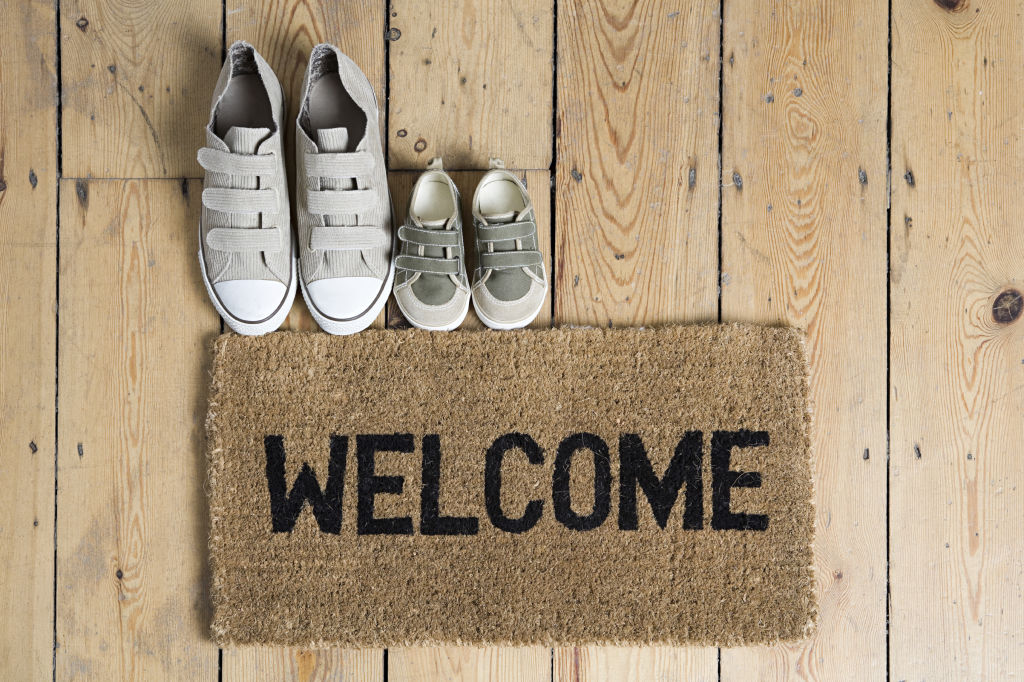How do I finance my new home?

Whether you’re looking at a first home, second home or investment purchase, a financial health check will let you know whether you’re financially ready to buy. Don’t forget there are both upfront and ongoing costs when owning a property.
Financial health check
Ask yourself the following questions:
- What is my current income and what are my savings?
- Do I have any assets? Do they need to be sold to finance the property? How much are they worth?
- What are my debts and current expenses?
- What will my future expenses and income look like? Are they likely to change? Consider possible lifestyle changes such as having children, as well as the ongoing expenses of the new property such as rates, strata fees and maintenance.
There are also external financial factors to consider, including:
- What is the current interest rate and how are interest rates forecast to change?
- What is the current economic climate?
- What is the median property price for similar homes in your target suburbs?
- What is the sales price trend for similar homes in your target suburbs?
Purchase goals
Once you have your finances under control, it’s time to consider your financial goals regarding the property. Do you plan to buy and live there indefinitely or is it an investment you’re likely to turn over? If you’re buying a residence but are likely to sell within the next 5–10 years, pay close attention to the price trends and forecasts in the property market where you’re buying – keep your finger on the pulse to get the best price.
First home buyers
If this is your first home purchase, you’re in luck, with governments providing grants to encourage first-time purchasers to build or buy new properties. Eligibility for the First Home Owners Grant (FHOG) scheme varies for each state and territory, so check out the rules for your state or territory at www.firsthome.gov.au. Some states and territories have extra benefits or concessions for first home buyers on top of the FHOG. Typically, buyers will need to live in the home for up to 12 months to qualify.
For more information on buying your first home, take a look at our First Home Buyers’ Checklist.
Investors
If you’re buying to invest, financing your new property is a different story. While you should still do your financial health check, rental income and capital growth will play a major part in your calculations; you should also be very clear about your investment goals. MoneySmart has some comprehensive advice about purchasing an investment property.
Key elements to take into consideration are:
- If you’re taking out a loan to purchase the property, you can offset the interest and most property expenses against your rental income for tax purposes. Take care, as borrowing to invest can be risky and requires a very good understanding of all the financials involved.
- You’ll pay tax on your rental income if you are positively geared, and on your capital gain when you sell.
- If rental income doesn’t cover your mortgage repayments and other expenses, you will need access to other funds to meet these costs.
- Look for a property with features that have broad appeal, but be aware that you may have periods of time when there is no tenant, and therefore no rental income.
- Focus on desirable areas where rental income is high and vacancy is low.
- Buy in an area where property prices are likely to increase, so you don’t end up owing more than the property is worth.
- Aim for a property with low maintenance costs – units can be cheaper to maintain than houses, but be aware of body corporate fees.
According to Paul Drum, CPA Australia’s Head of Policy, “If you are considering purchasing an investment property, the aim is typically to maximise wealth, therefore you should at least be aiming for a return on your investment that exceeds the purchase price and associated costs, including the interest expense paid on your loan.”
If this is your first foray into the property investment market, take a look at our First-Time Real Estate Investor Guide.
Engaging professional help
If you’re having trouble getting your head around the finances involved in buying a property, you’re not alone. Domain’s survey found that over 50 per cent of Australian home buyers listed “understanding all the costs and fees” to be stressful, while 17 per cent found it to be the most stressful factor of buying a property. Getting professional help can make you feel like you’re in good hands and reduce the stress of going it alone.
- Financial advisors: A financial advisor can help you understand your financial position, including how much you can spend, how to structure your mortgage and how to manage ongoing costs. A tax agent can provide advice on your investment’s tax implications.
- Finding a lender: You will most likely need to find a lender to provide you with the best home loan. You can use a mortgage broker who will recommend an appropriate loan tailored to your needs and negotiate the terms of the loan for you.
- Buyer agents: If you are uncomfortable about the buying process, or too time-poor to do the necessary research, you can hire a buyer agent. Buyer agents can find the right property, manage the negotiation process, bid at auction and manage the settlement. You can also enlist the help of a real estate agent to let you know when relevant properties come on the market.
- Legal services: Buying a house is potentially one of the biggest purchases you are ever likely to make, so it’s advisable to protect your interests by hiring a conveyancer or a solicitor. They will perform a range of tasks including examining contracts of sale, mortgages and strata reports, conducting title searches and overseeing the exchange of title.
For more information on finding the right help, take a look at our property buyer services guide.
We recommend
We thought you might like
States
Capital Cities
Capital Cities - Rentals
Popular Areas
Allhomes
More







